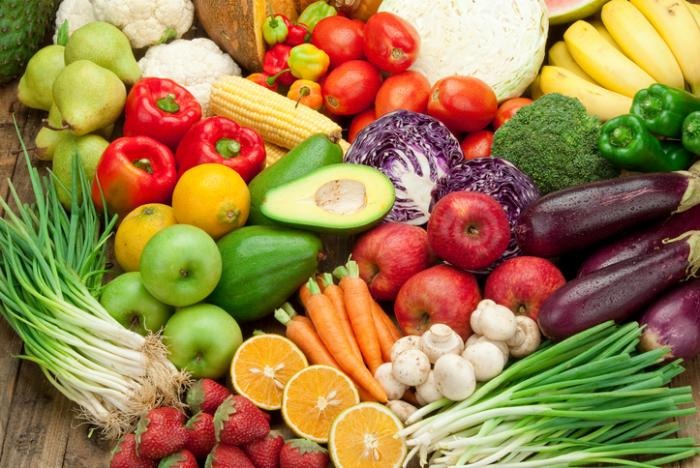7 Food Habits to Stay Healthy in Monsoon
After the scorching heat of summer, the monsoon brings a breath of freshness to nature. Although monsoon rain gives relief from heat, it also brings some hazards for health. Along with monsoon season comes cold, flu, typhoid, mosquito borne diseases like dengue, stomach infection, these are some of the most common diseases that people suffer from. Hence, we need to maintain healthy food habits to keep ourselves fit. Healthy food habits means maintaining a balanced diet which helps to boost the immune system of the body. During monsoon in our regular food habits we should try to eat seasonal fruits and vegetables which are rich in vitamins, we should also consume lots of fluids like purified water, soups. Besides that we should also keep spices and herbs like turmeric, ginger, garlic, cinnamon in our daily food and most importantly we should avoid eating street food. If we manage to follow these proper food habits then it is quite possible to stay healthy in the season of monsoon.

Foods to Include in Monsoon Diets
Seasonal Fruits
During monsoon season different kinds of fruits are available like pomegranates, pears, apples, blackberries, papaya, etc. All of these fruits have different nutritional values like vitamin A, B, C, fibres, potassium, calcium, iron, etc. These varieties of fruits help to prevent infections, inflammations, which are pretty common health problems in monsoon.
Seasonal Vegetables
Monsoon vegetables include bottle gourd, bitter gourd, cucumber, beetroot, radish, etc, all these vegetables have their own benefits. Bottle gourd is rich in dietary fibre and also a low calorie vegetable which supports a healthy digestive system and also keeps our stomach light after the meal. Bitter gourd is another easily available vegetable in monsoon, though it might not be tasty to eat but it is rich in minerals and antioxidants which helps to prevent seasonal flu and also regulates blood sugar levels. Cucumber is another monsoon vegetable which is rich in potassium, magnesium, vitamin A, K, which helps our body to fight against monsoon sickness, it can be used in both salads and sandwiches. Beetroot and radish are both rich in potassium, iron, vitamin C as they help in blood circulation and improve hemoglobin levels and help to fight common cold and flu during monsoon.
Fluids
As we feel during the time of monsoon the weather is comparatively cooler than summer so we feel less urge to drink water but physiologically due to humidity outside we sweat even more which might cause dehydration. Therefore, we should drink the proper quantity of water and also remember that water should be purified to avoid any kind of stomach infections. Besides water we can keep soups and broths in our regular diets and we can also drink herbal teas, these drinks help to maintain electrolyte balance and also detoxifies the system.
Spices
Spices and herbs like turmeric, garlic, ginger, cinnamon, etc. consist of anti-inflammatory, anti-fungal, anti-viral, anti-bacterial and various immune boosting activities. As we have different kinds of curries in our regular foods, we should try to incorporate all these spices as they help to fight monsoon diseases like flu and fever.
Probiotics
The beneficial bacteria that live in our intestines and guts are known as probiotics. Probiotic foods include yogurt, buttermilk, and there are even specific drinks that can be found in the market which are called “probiotic drinks”. Probiotic foods can fight against harmful bacteria that cause diseases like cholera, typhoid which mostly like to occur in monsoon.
Dry Fruits and Nuts
Dry fruits and nuts are full of healthy fats, they consist of antioxidants like vitamin E that helps to support the immune system of the body. In monsoon season we can have dates, raisins, cashew and walnuts as healthy evening snacks rather than any unhealthy fried snacks.
Foods to Avoid during Monsoon
● We should avoid eating street foods like fuchka, jhal muri or any snacks that are sold in streets because these foods act as a container for viruses and bacteria which can cause food and waterborne diseases like cholera and typhoid.
● We should try avoiding eating fried foods like samosas and shingaras as these are fried in excess amounts of oil which can cause bloating in the stomach, indigestion, diarrhoea due to which we can fall severely ill.
● Although it is good to have vegetables in our diets, during monsoon we should avoid eating leafy vegetables as during monsoon there are higher possibilities of fungal and bacterial growth on leafy vegetables.
There is no doubt that monsoon is a beautiful and enjoyable season but at the same time monsoon brings different kinds of diseases with it. Therefore, we should try to incorporate healthy food habits so that our body can fight against diseases, in this way we can stay fit and also enjoy the lovely vibe of the monsoon
Post a comment